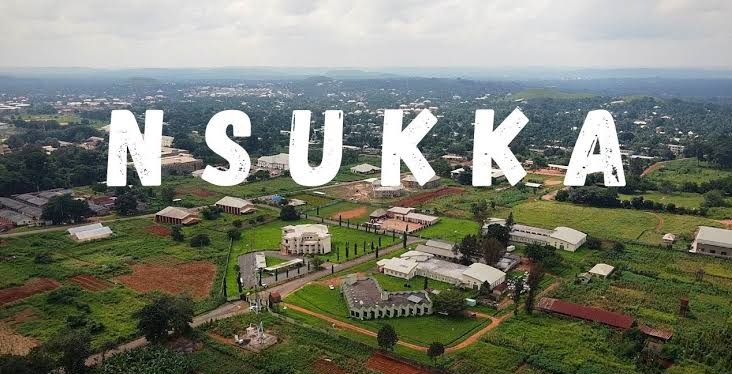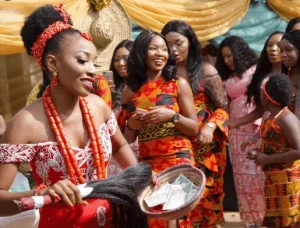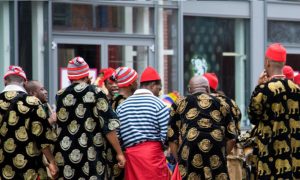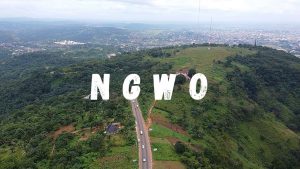
Nigeria’s Enugu State is home to the town and Local Government Area of Nsukka. The towns of Edem, Opi (an archaeological site), Ede-Oballa, and Obimo all border Nsukka.
Walter Ozioko is the local government’s chairperson in the area. The entire land area of Nsukka is 2,141.08 square miles (5,545.38 km2). According to the 2006 Nigerian census, there are about 309,633 people living there. This is 2022 and no doubt, with the rapid increase in population every day, Nsukka’s population would have risen to almost half a million people or more.
Mkpunano, Nru, and Ihe’n Owerre all make up Nsukka. There is now a false tendency of calling all the towns in the Enugu North Senatorial Zone Nsukka. This pattern may have emerged as a result of colonial administration, when Nsukka served as the administrative center for the now-defunct Nsukka province.
The Institution of Nigeria, Nsukka – the first indigenous university in Nigeria, is located in Nsukka, which is also a local government area (UNN). The Nsukka dialect, a smaller variety of the wider Igbo language, is spoken by residents in Nsukka. Since the Achadu Oko Attah tribe in Idah historically migrated from Nsukka, the impact of Nsukka people could be felt all the way there.
Ancient Nsukka War History
In the 18th and 19th centuries, Nsukka possessed one of the greatest fighting forces in what is now Enugu-North, which it used to wage war against its neighbors in an effort to expand into new territory for their ever growing population and for other reasons. A fighting force made up of residents of each of the communities that made up the town of Nsukka was stationed there.
As a result of Nsukka’s frequent fights with her neighbors, some nearby communities asked her for assistance in defending them against their enemies. The fight with Ejuona-Obukpa (a community in Obukpa), which ultimately resulted in the annexation of a portion of Ejuona-Obukpa, was another example of Nsukka’s attempt at expansion. According to D. C. Ugwu, since Ejuona (the involved community) declined the support of the rest of the Obukpa, this war shouldn’t be seen as one between Nsukka and the entire Obukpa. By the time the conflict came to a close, Nsukka had taken control of several areas of Ejuona-Obukpa, nearly wiping out one village (Umugboguru) and all of its inhabitants.
The Cultual Practices
Eshu Ritual Rites for Funerals
In the Nsukka cultural region of Igbo land, an Igbo breed of cow known as the “Eshu” is utilized in a funeral ceremony. If someone receives funeral rites, a number of things come into play, including how and when they pass away, their marital status, and whether they performed the same ceremonies for their own parents or not. If someone meets the requirements, the ritual is carried out to ensure that the dead can rest in peace and to elevate them to a higher status in the hereafter. There are numerous animals that can be used, and each species has a unique purpose. The cow is ranked first among those employed in the ceremony.
Masquerade
One of the Igbo communities, Nsukka, is noted for having a strong sense of tradition, especially when it comes to the masquerade festival. These masquerades come in a variety of hues and forms. Some are exquisitely crafted while others are scruffy. In many communities, the Nsukka masquerade goes by different names. It goes by the names of Akatakpa in Obollo Afor, Odo in Igbo Etiti, Ogede in Orba, and Oriokpa in Nsukka. Masquerade were once a popular gathering place since they served a variety of goals, from entertainment to social control and peacemaking, as well as security.
Ndishi Tradition
The male gender had complete dominance in traditional Igbo society. It was a man’s world; women were to be seen but not heard. Women in the society only had little roles in daily government, economic activities, and religion, among other things. A man is free to take as many wives as he desires. His first group of children might have age-matched siblings from the younger brides. Rarely is it considered whether the spouse is virile enough to appease the countless wives. The Nsukka Igbo established the Ndishi/Nna ritual to prevent women in their polygamous community from engaging in marital adultery. The Nsukka people’s Ndishi/Nna tradition refers to a spiritual avowal with mythical roots.
The custom prevents any married woman from indulging in any kind of extramarital encounters or aiding them without the husband’s full consent. The effectiveness of this tradition is typically explained to women from other regions of Igbo land who are married to the men from this region. People generally believe that any such action summons the wrath of the gods, which causes the offender to go insane immediately. The researchers looked into the effectiveness of this custom in detecting marital infidelity using a qualitative approach that included participant observation, in-depth interviews, and oral tradition. The communities that have diverse cultural traditions among Nsukka people were chosen for the study: Enugu-Ezike, Obollo, and Imilike.
The cultural practices that the Nsukka people are accustomed to are ancient practices. To follow the rule and escape the harm done by the locals and their gods, only those who come from other regions are urged to abide.
These are some practices you can find in Nsukka and if you are not an indigene, it would be wise to not only know them but remember them whenever you visit.


